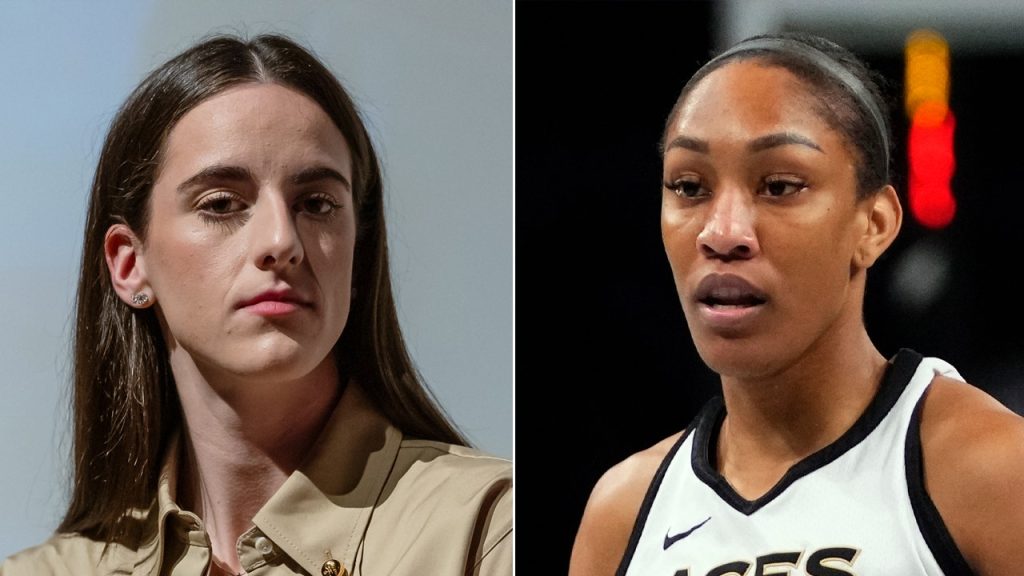Las Vegas Aces center A’ja Wilson, a five-time All-Star, is aiming to lead her team to a third straight WNBA championship this season. However, the Aces’ pursuit of a three-peat might be overshadowed by the arrival of incoming rookie Caitlin Clark from the Indiana Fever. Clark, a former Iowa star, set all-time scoring records during her senior season and led her school to consecutive national championship appearances. Despite Clark’s on-court accomplishments, much of the conversation around her has shifted towards discussions and critiques about why she is popular rather than focusing on her impact on women’s basketball.
In an interview with The Associated Press, Wilson acknowledged a racial element to Clark’s popularity, expressing frustration that as a Black woman, she and others like her may not be seen as marketable or deserving of recognition despite their hard work and talent. Wilson pointed out the disparities in endorsement deals, highlighting the fact that Clark received a signature shoe deal with Nike shortly after the WNBA Draft, while players of color like herself did not receive similar opportunities, even though they had achieved significant success in the league. Wilson’s endorsement deal with Gatorade was announced after her comments to the AP.
Clark concluded her collegiate career as the Division 1 all-time leading scorer with 3,951 points and received several prestigious awards, including the Wooden Award, Naismith Award, and Women’s AP Player of the Year Award in back-to-back years. In terms of endorsement deals, Clark’s early success can be attributed to her pre-existing relationships with top companies due to name, image, and likeness (NIL) opportunities. A study by SponsorUnited identified Clark as having nine brand deals, despite not ranking in the top five of female athletes in NIL deals. Players like Angel Reese of the Chicago Sky and former LSU teammate Flau’jae Johnson were among the top athletes in terms of NIL partnerships.
Despite the focus on Clark’s popularity and endorsement deals, Clark herself has refrained from engaging in the race debate, emphasizing that competition in women’s sports involves a larger community of athletes beyond herself and Reese. Clark highlighted the importance of multiple individuals excelling in women’s basketball and contributing to its growth. The ongoing rivalry between Clark and Reese has not overshadowed their respect for each other as competitors within the wider landscape of women’s sports. The Associated Press contributed to the report detailing the conversations surrounding race, endorsement deals, and the evolving landscape of women’s athletics in relation to figures like Wilson and Clark.


